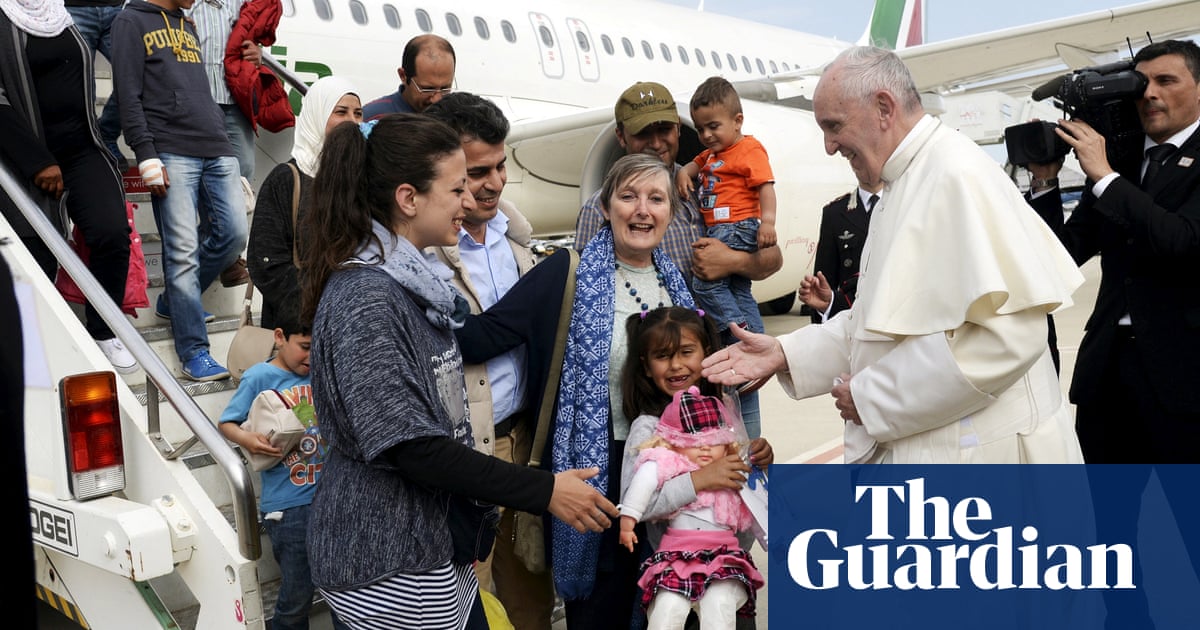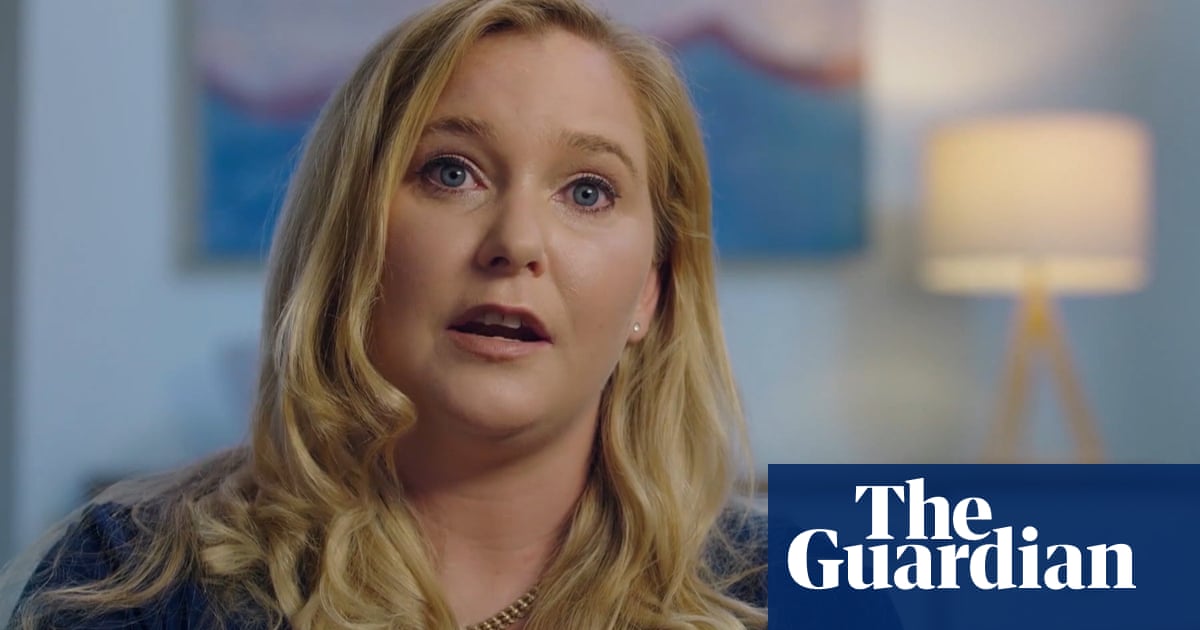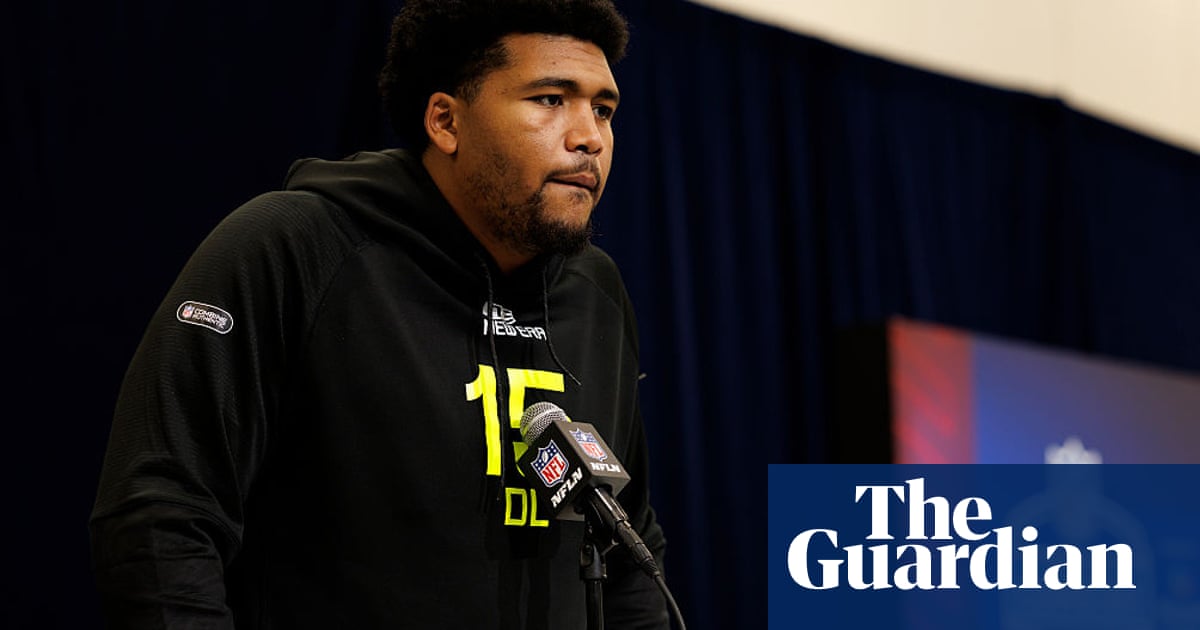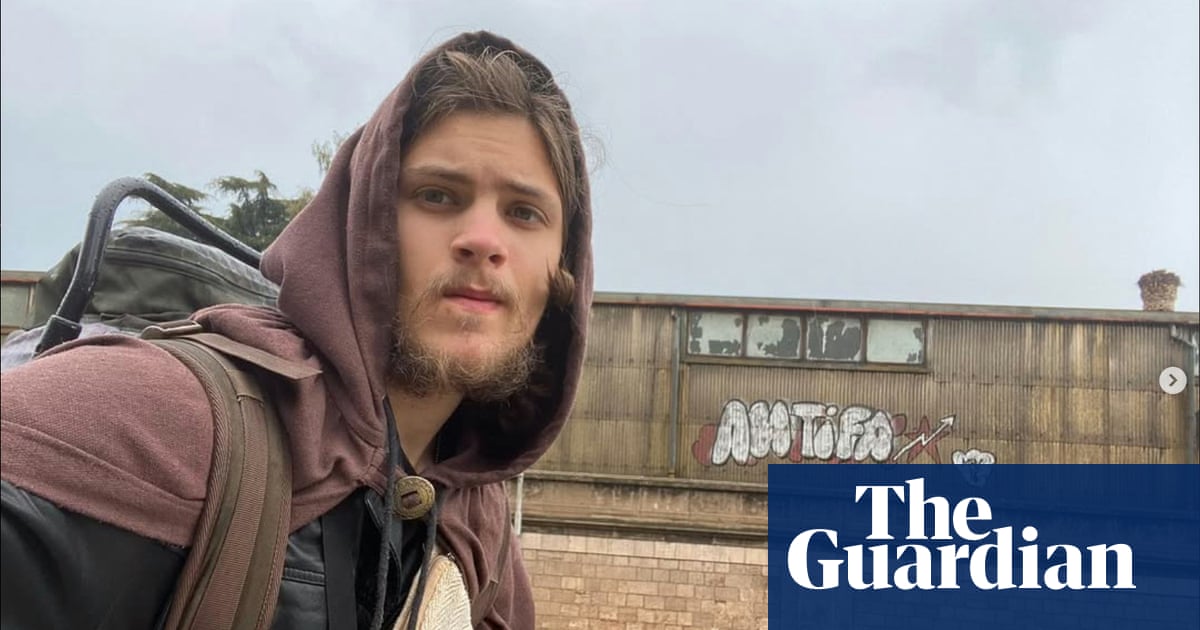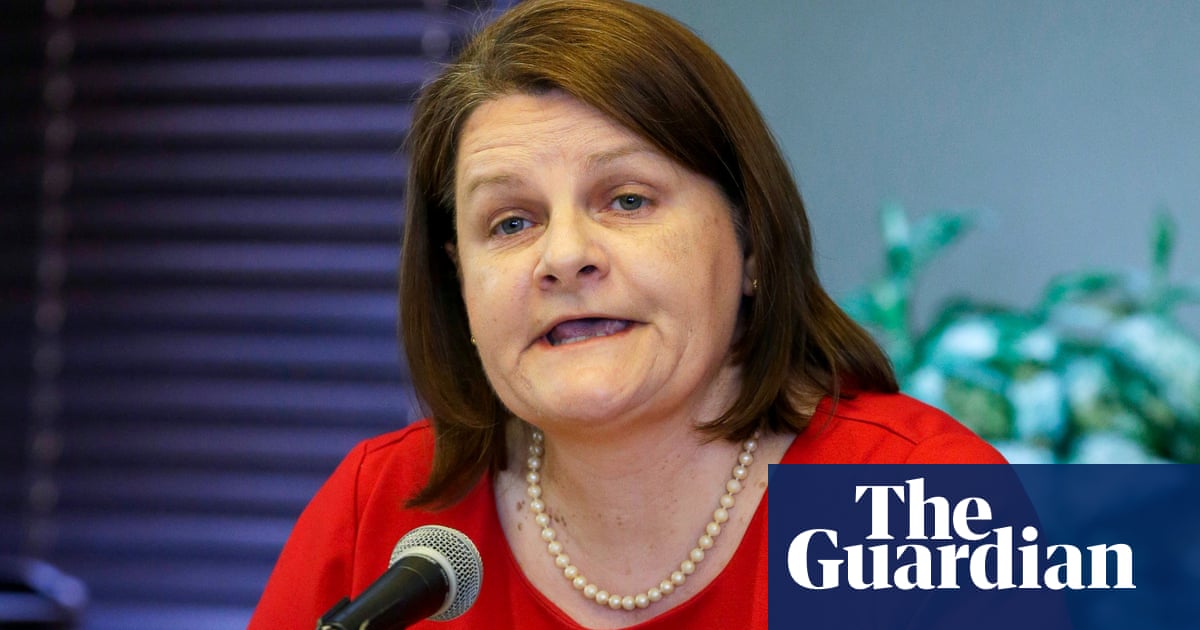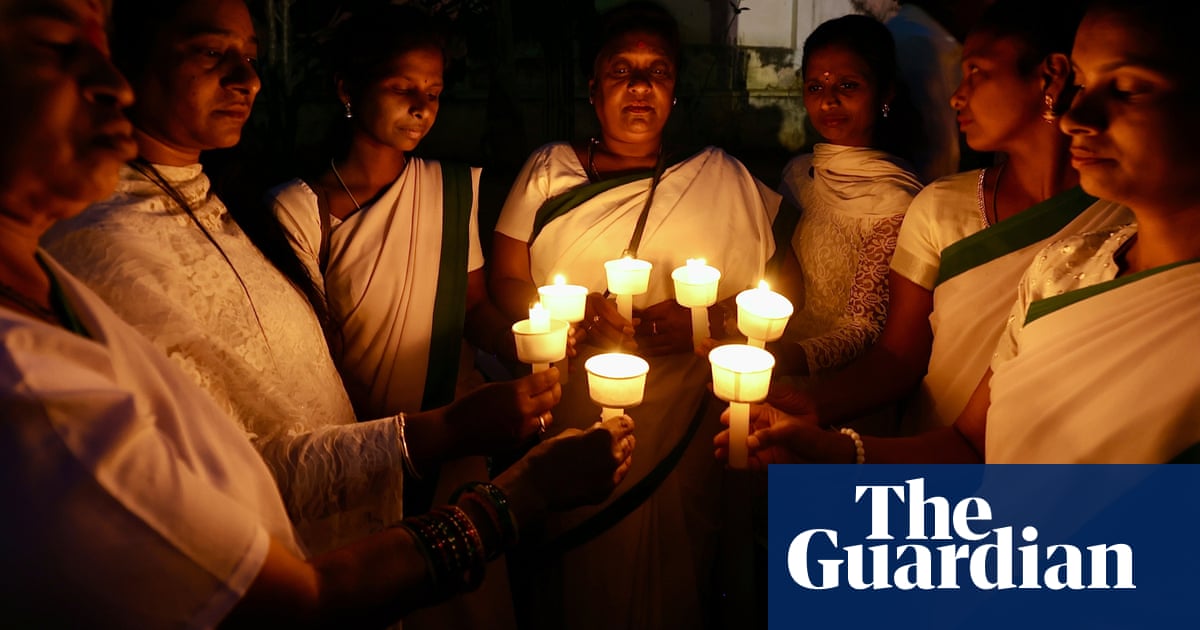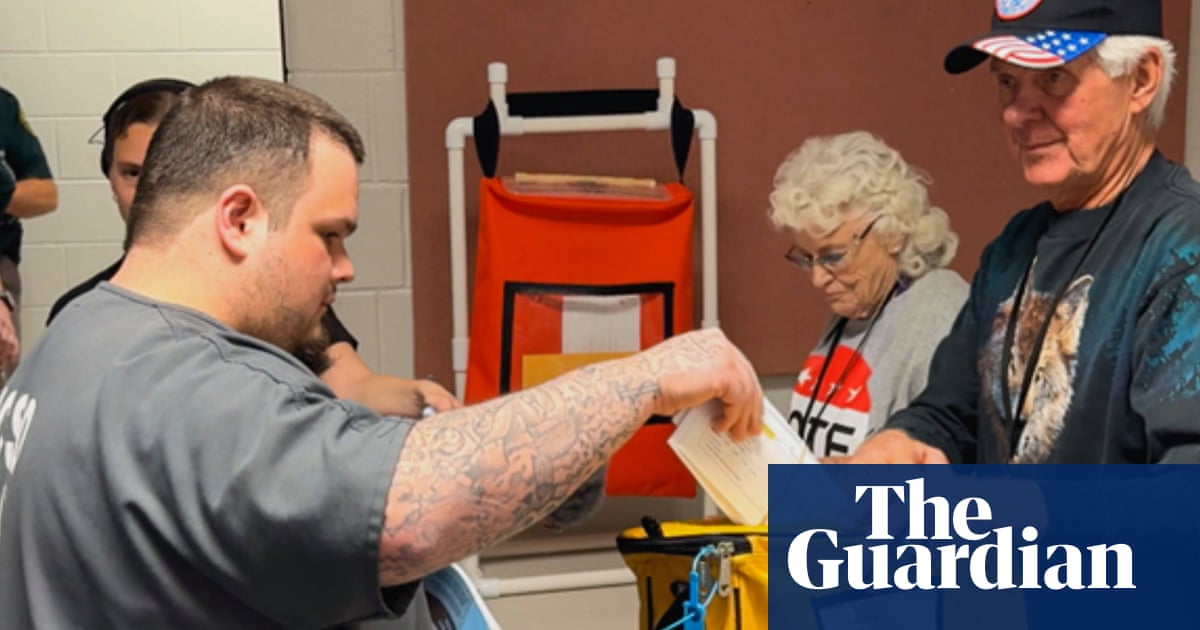The rise of “alternative facts” and the end of automatic deference to doctors is creating dangers for global efforts to vaccinate vulnerable children, David Miliband has warned.
The former UK foreign secretary, who now runs the International Rescue Committee (IRC), was speaking hours before Donald Trump’s inauguration as the 47th president of the US.
Changes to how the US engages with the rest of the world will not only potentially hamper efforts to provide health services and humanitarian aid to the most vulnerable, but could also have an impact on the amount of conflict and other disasters globally, Miliband said.

Trump’s pick for US health secretary, Robert F Kennedy Jr, has repeatedly spread conspiracy theories about vaccination. Trump has repeated some of that information, including suggesting that Kennedy will investigate the widely debunked myth that links autism and vaccines.
Any rise in anti-vaccine sentiment may make the IRC’s work harder, Miliband said. “The information ecosystem has moved from one that is hyper-deferential to medical opinion – which has its own challenges – to one where you can have your facts, or you can have your alternative facts, and that’s a very dangerous situation.”
Vaccine sceptics frequently challenge authorities “to prove negatives – and you can’t”, he said.
The IRC runs the Reaching Every Child in Humanitarian Settings (Reach) project, which works to get vaccines to children living in fragile or conflict-affected areas where government is partial or nonexistent.
Miliband was speaking to the Guardian at the IRC’s London office, having recently returned from a visit to a Reach project in Ethiopia. This month, the IRC announced 8m vaccine doses had been given to children under five living in hard-to-reach parts of Ethiopia, Sudan, South Sudan and Somalia.

He said he had asked women close to the Eritrean border whether they were happy with vaccines, and they had told him “of course”. The women also dismissed questions about whether people in the community said vaccines might be dangerous, saying they had “seen the benefit”.
But he said he had been “struck by the fact that rumours about who’s doing what, what different NGOs are doing, can race around […] so that the information ecosystem can be used in dangerous ways”.
He added: “I think that the lesson from these very challenging circumstances is that you’ve got to be ultra transparent, you’ve got to be ultra local, and you’ve got to be very clear that showing and not just telling is very important to winning arguments. So showing that you are employing local people, that you’re transparent about your data, that you’re clear about your practices. And you’ve got to show the benefits.”
Miliband withheld judgment on the potential impact of RFK Jr’s appointment ahead of his confirmation hearing.
“We don’t know how he is going to position himself against the expertise of the US CDC [Centers for Disease Control and Prevention] and others. I think we’ve got to let him speak for himself,” said Miliband. “There is obviously a lot of history. He’s said a lot of things and done a lot of things in the past five to 10 years. But I think we’ve got to give him the chance to set out his stall […] But obviously, the ricochet effects of American decisions, never mind American culture, are global not just local.”
The incoming US administration has also announced the country’s withdrawal from funding the World Health Organization, and is expected to reintroduce a “global gag” rule, reducing access to reproductive healthcare.
If the US withdraws from its historic role as a leading funder of global health and humanitarian work “it means fewer people getting vaccinated. It means fewer people getting malnutrition treatment. It certainly means fewer women and girls getting sexual reproductive health support. And obviously that’s in the treatment of symptoms – you’ve then got the question of, how does the US foreign policy stance contribute to or reduce conflict and other disasters around the world. So you’ve got on the supply side and on the demand side, a US impact.”

As a US-based organisation, the IRC has previously not been affected by the “global gag” which prevents overseas organisations that receive US health funding from providing abortion advocacy or services, even with money from other sources. There are fears – based on the Project 2025 playbook, whose authors include some incoming Trump officials – that the rule could be extended to cover domestic organisations.
On this, too, Miliband said he was minded to “wait and see”, but added: “We will always comply with the law.”
While much of the aid sector is beginning to talk about shifting power out of the hands of international NGOs and into local organisations, Miliband, who has himself faced scrutiny over his IRC salary, now more than $1m (£810,000) a year, said he saw that as “a false choice”. In Ethiopia, he said, 948 out of 950 IRC staff were Ethiopian.
“An international NGO brings expertise, experience, research findings, comparative practice and an infrastructure of systems,” he said. He described the partnerships between the ICR and local NGOs as “a marriage of expertise”.
“There’s the expertise of an international NGO, and there’s an expertise of local people, local NGOs,” he said. “So of course, you should have a subsidiarity principle. You want to decide things and do things at the lowest possible level for reasons of legitimacy, security, efficiency.
“But I don’t think if you said to a local NGO: ‘go, you’re on your own, here’s X dollars, go and find 50,000 kids who are zero dose …’ It’s very hard to do that without the infrastructure practice and support that an international NGO brings.”

 3 months ago
46
3 months ago
46

